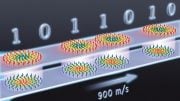
Scientists have identified 451 genetic variants linked to prostate cancer risk, enhancing risk prediction and screening accuracy, especially for men of African ancestry, through a comprehensive study involving nearly 950,000 men from diverse backgrounds.
An international collaboration led by USC explored the genomes of nearly 950,000 men, finding a total of 451 variants and refining what is known about genetic risk for prostate cancer.
A globe-spanning scientific team has compiled the most comprehensive list of genetic variants associated with prostate cancer risk — 451 in all — through a whole-genome analysis that ranks as the largest and most diverse investigation into prostate cancer genetics yet.
The research included major increases in representation among men from racial and ethnic groups that have often been left out of such research, revising what is known about genetic risk for the disease. The study was led by the USC Center for Genetic Epidemiology, the Keck School of Medicine of USC and USC Norris Comprehensive Cancer Center, and in the United Kingdom by The Institute of Cancer Research, London.
Enhanced Genetic Risk Measurement
With these findings, the researchers improved a system they developed for measuring genetic risk so that it was more effective in predicting who would or wouldn’t develop prostate cancer — even distinguishing between the likelihood of aggressive and less serious cases among men of African descent. The finding that higher risk scores based on the 451 variants correlated with more aggressive disease in men of African ancestry is a meaningful step toward improving early detection and making better-informed decisions about screening.
The study, published today (November 9) in Nature Genetics, builds on 2021 research documented in the same journal that found 269 genetic variants correlating with prostate cancer risk, based on a sample of nearly 235,000 men. The new results were derived from genomic information from close to 950,000 men.
Importance of Diverse Genetic Research
“We’re not going to learn everything there is to know about the genetics of prostate cancer by studying only White men,” said co-senior author Christopher Haiman, ScD, holder of the AFLAC Chair in Cancer Research and professor of population and public health sciences at the Keck School of Medicine. “Larger and larger studies, engaging a broader spectrum of populations, are important if we’re going to identify genetic markers of risk and develop risk prediction tools that are equally effective across populations.”
The researchers compared genomic data from 156,319 prostate cancer patients with that of a control group totaling 788,443. From the previous study, there was an 87% increase in the number of prostate cancer cases included from men of African ancestry, 45% from Latino ethnicity, 43% from European ancestry and 26% from Asian ancestry.
Haiman and his colleagues found 187 new genetic variants associated with prostate cancer risk. They also found 150 genetic variants from earlier research that were replaced by variants in nearby spots on the DNA double helix that better correlated with prostate cancer risk through the lens of the larger, more diverse sample.
“It’s an important refinement to find markers that are better at capturing risk across populations,” said Haiman, who is also director of the USC Center for Genetic Epidemiology and co-leader of the Cancer Epidemiology Program at USC Norris Cancer Center. “The idea of precision medicine and global medicine for all rely on including and integrating information across populations, because the best marker determined in Whites might not be the best marker overall.”
Progress in Assessing Risk
In addition to fueling further research, the results have the potential to benefit human health by providing men with personalized risk information that they can use when having discussions with their doctors about screening and treatment. Ultimately the research could lay the ground work for genetic testing to identify those at greater risk for aggressive prostate cancer and enable early detection by screening them earlier and more often.
Because many prostate cancer cases diagnosed today might never reach the point where they are life-threatening — leading to unnecessary treatment that can degrade quality of life — differentiating between risk for aggressive disease is key. Up until now, the scientists’ system for calculating risk scores has correlated with likelihood of developing prostate cancer, but lacked predictive value about how serious a given case may be.
“We’ll continue to improve this risk score, and look for markers that help to distinguish aggressive from less aggressive disease,” Haiman said. “Clinical trials will be required to evaluate the effectiveness of the risk score in helping doctors and patients make decisions about screening.”
International Collaboration and Future Directions
This research combined the data from virtually every study to date examining DNA for genetic variants associated with prostate cancer risk. The U.S. Veterans Health Administration’s Million Veteran Program and Argonne National Laboratory proved to be essential partners [for including diverse populations in the study]. Bringing it all together required a team effort encompassing more than 300 researchers from well over 100 institutions, in 26 nations — from Barbados to Bulgaria, Nigeria to the Netherlands, and Japan to Ghana.
“This shows what happens when the world research community comes together to make improvements for all,” Haiman said. “The fact that everyone was so willing to collaborate was enormously critical.”
Reference: “Characterizing prostate cancer risk through multi-ancestry genome-wide discovery of 187 novel risk variants” by Anqi Wang, Jiayi Shen, Alex A. Rodriguez, Edward J. Saunders, Fei Chen, Rohini Janivara, Burcu F. Darst, Xin Sheng, Yili Xu, Alisha J. Chou, Sara Benlloch, Tokhir Dadaev, Mark N. Brook, Anna Plym, Ali Sahimi, Thomas J. Hoffman, Atushi Takahashi, Koichi Matsuda, Yukihide Momozawa, Masashi Fujita, Triin Laisk, Jéssica Figuerêdo, Kenneth Muir, Shuji Ito, Xiaoxi Liu, The Biobank Japan Project, Yuji Uchio, Michiaki Kubo, Yoichiro Kamatani, Artitaya Lophatananon, Peggy Wan, Caroline Andrews, Adriana Lori, Parichoy P. Choudhury, Johanna Schleutker, Teuvo L. J. Tammela, Csilla Sipeky, Anssi Auvinen, Graham G. Giles, Melissa C. Southey, Robert J. MacInnis, Cezary Cybulski, Dominika Wokolorczyk, Jan Lubinski, Christopher T. Rentsch, Kelly Cho, Benjamin H. Mcmahon, David E. Neal, Jenny L. Donovan, Freddie C. Hamdy, Richard M. Martin, Borge G. Nordestgaard, Sune F. Nielsen, Maren Weischer, Stig E. Bojesen, Andreas Røder, Hein V. Stroomberg, Jyotsna Batra, Suzanne Chambers, Lisa Horvath, Judith A. Clements, Wayne Tilly, Gail P. Risbridger, Henrik Gronberg, Markus Aly, Robert Szulkin, Martin Eklund, Tobias Nordstrom, Nora Pashayan, Alison M. Dunning, Maya Ghoussaini, Ruth C. Travis, Tim J. Key, Elio Riboli, Jong Y. Park, Thomas A. Sellers, Hui-Yi Lin, Demetrius Albanes, Stephanie Weinstein, Michael B. Cook, Lorelei A. Mucci, Edward Giovannucci, Sara Lindstrom, Peter Kraft, David J. Hunter, Kathryn L. Penney, Constance Turman, Catherine M. Tangen, Phyllis J. Goodman, Ian M. Thompson Jr., Robert J. Hamilton, Neil E. Fleshner, Antonio Finelli, Marie-Élise Parent, Janet L. Stanford, Elaine A. Ostrander, Stella Koutros, Laura E. Beane Freeman, Meir Stampfer, Alicja Wolk, Niclas Håkansson, Gerald L. Andriole, Robert N. Hoover, Mitchell J. Machiela, Karina Dalsgaard Sørensen, Michael Borre, William J. Blot, Wei Zheng, Edward D. Yeboah, James E. Mensah, Yong-Jie Lu, Hong-Wei Zhang, Ninghan Feng, Xueying Mao, Yudong Wu, Shan-Chao Zhao, … Stephen J. Chanock, Sonja I. Berndt, Fredrik Wiklund, Hidewaki Nakagawa, John S. Witte, J. Michael Gaziano, Amy C. Justice, Nick Mancuso, Chikashi Terao, Rosalind A. Eeles, Zsofia Kote-Jarai, Ravi K. Madduri, David V. Conti and Christopher A. Haiman, 9 November 2023, Nature Genetics.
DOI: 10.1038/s41588-023-01534-4
The first author of the study is Anqi Wang, who earned her doctorate from the Keck School of Medicine in 2023. David Conti, professor of population and public health sciences at the Keck School and associate director of data science integration at USC Norris Comprehensive Cancer Center, was co-senior author. Among hundreds of co-authors, other study collaborators associated with the Keck School are Jiayi Shen, Fei Chen, Xin Sheng, Yili Xu, Alisha Chou, Ali Sahimi, Peggy Wan, Sue Ingles, Mariana Stern, Roberta McKean-Cowdin, Zeyun Lu and Nick Mancuso.
This study was supported by the National Institutes of Health (R01CA257328, U19CA214253, U01CA261339, P01CA196569, R00CA246063) and the Prostate Cancer Foundation (20CHAS03, 21YOUN11).









Be the first to comment on "Genetic Treasure Trove: 451 Keys to Unlocking Prostate Cancer Mysteries"